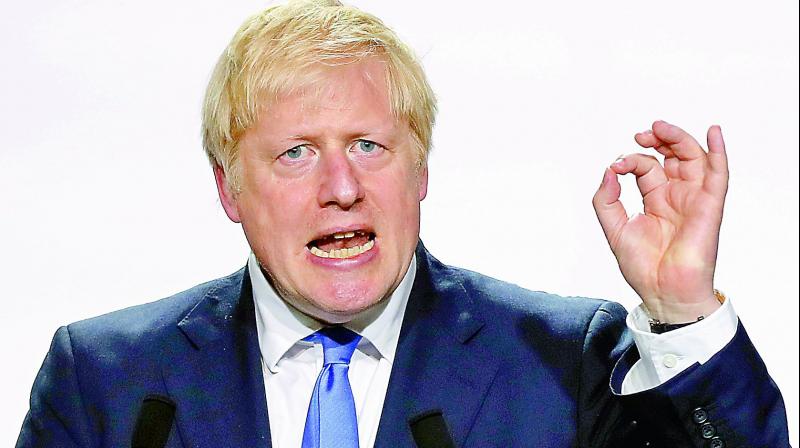Brexit may see return of US ‘chlorinated chicken’

New York: Could Brexit bring America’s “chlorinated chicken” to the United Kingdom? The European Union has long refused to import poultry from the US that is routinely rinsed with chemical washes to kill germs.
But the UK’s planned exit from the EU is putting the practice back in the spotlight, with Prime Minister Boris Johnson even taunting Labor Party leader Jeremy Corbyn by calling him a “chlorinated chicken.” The term has come to sum up concerns that Britain could be pressured to accept to looser food safety standards when negotiating its own post-Brexit trade deals. Unlike in the EU, the use of antimicrobial sprays and washes is widespread in the US chicken industry. Companies apply them to kill germs at various stages during processing, such as when carcasses are de-feathered, gutted or any other point when feces could splatter and spread germs. The chemicals used in rinses have to be approved by the US Department of Agric-ulture, and their use is limited to specified amounts. The agency said the rinses are present in finished goods at insignificant levels. The US chicken industry says the use of chlorine has declined to about 10 per cent of the country’s plants, as other chemicals became common. It said rinses improve food safety, but that it’s difficult to completely rid raw chicken of salmonella and cam-pylobacter germs, which don’t sicken birds and are commonly found in their guts.
“Chicken and campylobacter are best friends,” said Ashley Peterson of the National Chicken Council, an industry group. Campylobacter (kam-pih-loh-BAK'-tur) isn’t widely known in the US but is a major cause of food poisoning. Critics of food safety regulation in the US say the use of antimicrobial washes and sprays underscores how widespread the bacteria are in raw chicken, especially considering the persistence of food poisoning outbreaks.

